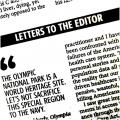
The letter from Patrick Boyle published on September 27 (Rejecting the science) brings up the thorny question of whether science or religion best explains the physical world around us? How best to explain the creation of our universe, or more particularly our own planet? Intervening in such a debate is unlikely to persuade antagonists on either side to change their opinion.
READ MORE: Letter: Rejecting the science
The physical sciences set out to explain the world around us based on hypothesis and experimental verification. Our view changes based on new ideas, experimentation, and technical advances, otherwise we would still believe in a flat earth and be seeking to change base metals into gold and silver by alchemy. The great strength of science is that it adapts and adjusts its view of the world we inhabit when new facts or knowledge become available. I think most people would agree that science has been, in general, a force for good, despite some aberrations along the way. To be honest I am not sure everybody would share the same opinion about the contribution of religion over the course of history, or at least man’s interpretation of the same.
Religion is based on ancient texts that have not changed in 2,000 years. The level of how you may choose to interpret these texts depends on your particular belief, orthodoxy and culture. The glue that holds all this together is faith, one definition of which is “things hoped for, evidence not seen” (Hebrews 11:1). Clearly this contradicts the evidence-based approach of science and acts as an anchor against ongoing change of opinion, but does give a level of certainty about the world around us that science lacks. The logic expressed by Mr Boyle would seem to be in direct contradiction to the starting point of many scientific developments. Speculation was the foundation of Einstein’s Theory of Relativity, later to be verified by physical measurement. Cut of the imagination of the human race (God given or not) and we would still be living in the Dark Ages.
Based on my initial premise. I do not seek to take sides on an argument of science versus religion but would pose the question: can you be both religious and a scientist? Clearly the answer to this is yes as some very intelligent people have rationalised the apparent anomalies this may pose. Perhaps this is a lesson to us all that adopting intransigent opposing points of view is not always helpful, something which is being demonstrably played out in Parliament as I write this letter.
Dr Dennis Lock
Sherwoods Road, Watford



Comments: Our rules
We want our comments to be a lively and valuable part of our community - a place where readers can debate and engage with the most important local issues. The ability to comment on our stories is a privilege, not a right, however, and that privilege may be withdrawn if it is abused or misused.
Please report any comments that break our rules.
Read the rules hereLast Updated:
Report this comment Cancel